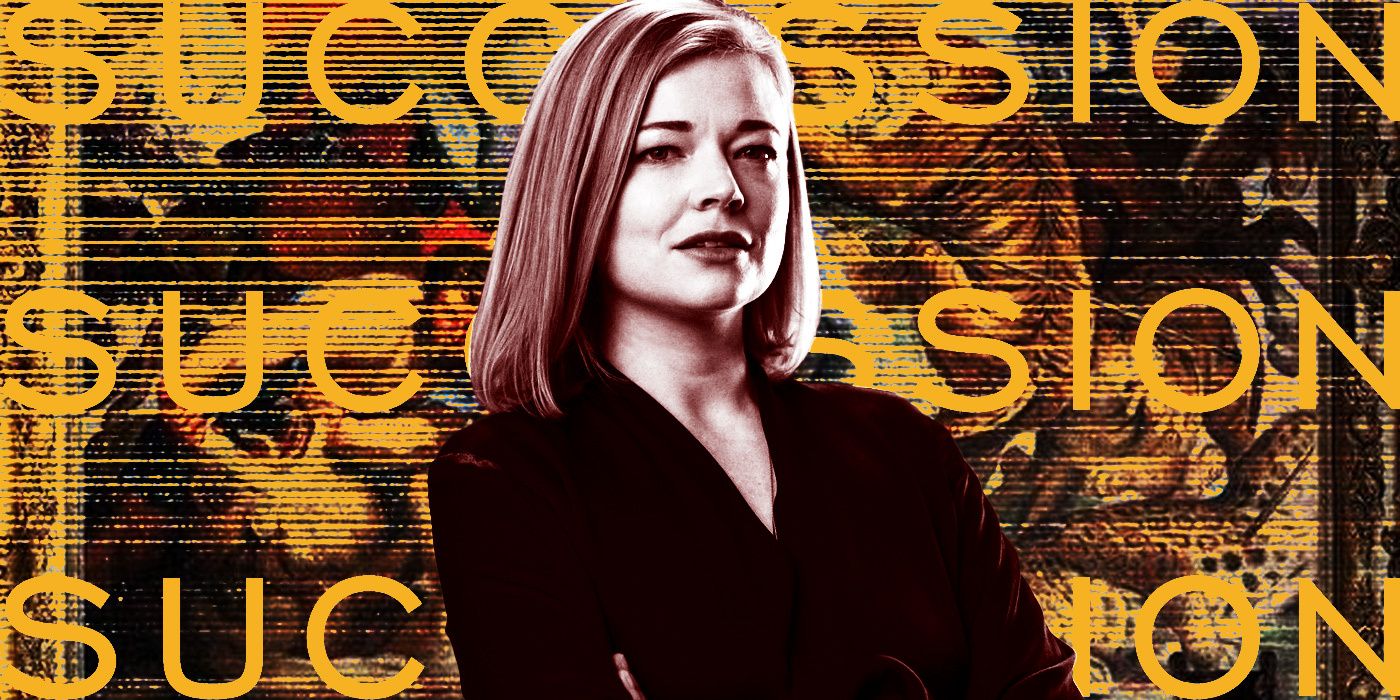In less than a decade, the term “girlboss” has been through one hell of a transformation. When it was coined by Nasty Gal founder Sophia Amoruso in 2014, it was the ultimate feminist credential, a gender-specific badge of honor worn by tough-as-acrylic-nails women scaling patriarchal ladders one rung at a time. It was meant to channel the perseverance, the grit, and the indomitable spirit of women. And it caught on like wildfire. Soon, everyone was trying to identify as that mythic of all creatures, the #girlboss. Beauty companies and co-working spaces invoked her spirit like she was some patron saint of equality. Facebook executives wrote memoirs urging her to “lean in.” And pop culture extracted the feelings of empowerment and autonomy she inspired to craft everything from pop bangers to blockbuster comedies. When the girlboss eventually fell from grace, it was sudden and widely reported on… but not necessarily shocking.
As women like Amoruso and Sheryl Sandberg and Glossier CEO Emily Weiss faced allegations of fostering toxic work environments and racist hiring practices, the world began to catch onto how narrow the definition of “girlboss” truly was. A girlboss was fighting for gender equality, but only for a select few, and she was playing by the established rules of the patriarchy to do it. She was benefiting from benevolent sexism, tapping on the glass ceiling but never really shattering it. She was capitalizing on capitalism’s need to rebrand itself as a sustainable model for all, a token diversity hire happy to wage war on sexism and leave any other intersectional issues to women who faced even more barriers of entry than she. She tackled misogyny, but misandry was someone else’s problem. She lived by the slogan, “Empowered women empower women,” as long cis was included as an invisible precursor to one's gender identity. Women of color likely saw through this feminist chosen one cosplay all along, but it took the rest of us – TV especially – time to catch up.
In Shrill’s second season, Aidy Bryant’s character Annie heads to a women’s conference called WAHAM, or “Women Are Having A Moment.” She’s psyched to be there, awed at how history’s youngest female CEO of a Fortune 500 company (played by the terrific Vanessa Bayer) has created such an impressive, impressively expensive space for women to network. But, as Annie strolls past pastel-pink booths selling “pretty” dildos and toddler-sized t-shirts and leg makeup that promises to camouflage your “disgusting leg skin,” she begins to realize that this version of feminism, with its high price tag and hollow slogans plastered onto bathroom stalls, isn’t for everyone.
Instead of changing the system, Bayer’s high-powered “lady boss” coaches women to adapt to it, to change themselves to fit into the vision of a thin, attractive white woman workaholic who swears off carbs and runs five miles a day before donning her power suit and heels to conquer the world, transforming boardrooms into broad-rooms. But Annie isn’t that feminist avatar these women are worshipping and the women she’s friends with like her Queer Black roommate, never will be. And while some girlbosses have been propped up in scammer sagas that mine comedy from their sense of entitlement and genius – Netflix’s I Care A Lot comes to mind – others are having a long-overdue reckoning.
HBO’s Succession is a show about money – how it corrupts, consumes, and controls the lives of the wealthy elite who possess it. Money naturally affords these corporate cretins power, another slice of the inheritance pie the show’s trio of siblings, Shiv Roy (Sarah Snook), Kendall Roy (Jeremy Strong), and Roman Roy (Kieran Culkin) constantly squabble over. When the series first introduced the Machiavellian dynamics of the Roy family, headed by its unforgiving, unwilling-to-retire patriarch Logan Roy (Brian Cox), Snook’s Shiv seemed wholly disinterested in assuming the Waystar-Royco mantle. She rebelled against her family’s reputation, working for a liberal politician and dishing out cutting remarks about her father’s obsession with legacy and her brothers’ childlike need for his approval at every catered family dinner. But, when Logan teased the notion of Shiv succeeding him as CEO, her mask of apathy crumbled. She clawed and backstabbed and intimidated with the best of them, eager to prove she had the ruthless business acumen and bloodthirsty drive needed to keep the company afloat.
Shiv was never a “good” person. There are no “good” people on Succession in case you were wondering. But, she was “better” than the rest, until she wasn’t – until she girlbossed too close to the sun and began gaslighting and gatekeeping her fellow women.
In Season 2, in order to prove to her father she could sacrifice her precious feminist ideals for the company’s benefit, she manipulated a survivor of sexual assault, pressuring her into withdrawing damning testimony, selling her motivations as concern for the woman’s privacy and well-being when her true interests were in protecting the actions of her father and brother — or, rather, their inaction. She’d slip again, thwarting Rhea Jarrell’s (Holly Hunter) plans to occupy the Waystar-Royco throne despite the obvious fact that she was more experienced and better suited for the job.
And, in the show’s third season, Shiv subtly suggested that Gerri Kellman (J. Smith Cameron) shouldn’t keep quiet about the unsolicited sexts from her brother that served as a catalyst for the show’s most uncomfortable moment so far. Roman’s celebratory dick pics after his father’s congratulations on a job well done certainly fall under the umbrella of sexual harassment, but that’s not why Shiv presses Gerri to report the incident to HR. She doesn’t come to her as a pillar of support or a fellow woman who’s had her own #MeToo moments in the workplace. Instead, Shiv sees Gerri’s Catch-22 as a strategic counterstrike against her younger brother who’s been surpassing her in the race to be knighted CEO by their father. She ominously warns Gerri that, by not reporting the photos, some might believe she “welcomed them.”
Shiv’s descent into the depth of girlboss depravity has been painful to watch for female fans hoping she might break free of the world she was born into, but her turn to the dark side actually feels like a more accurate representation of the decision white-passing women make when it comes to wielding their inherent privileges for personal gain.
In that way, Succession represents a growing trend on TV, the interrogation of what it means to be a girlboss now and whether we can reclaim that moniker to make it more inclusive and accepting. The fact that girlbosses have suffered consequences for their actions in the business world and on TV even as “strong Black women" — the label we assign Black entrepreneurs and executives on a parallel track who have thrived despite the term’s feminist blowback — continue to make headway signals that the “girlboss” was never for everyone. While women of color gain ground in the fight for change and representation on screen begins to reflect those wins, the old notion of what a girlboss is can (and should) evolve. Perhaps the first step in that evolution is removing the sheen from her title in pop culture and using TV as the mirror to examine and fix her flaws?



.jpg)

